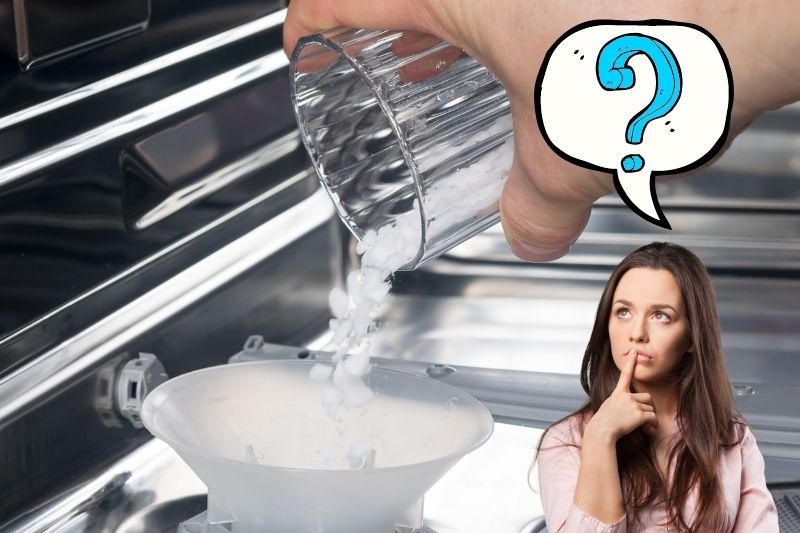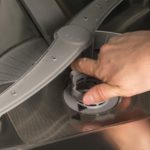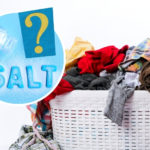The purpose of dishwasher salt is to soften the water inside your dishwasher. Therefore, if the water in your area is already soft, you might be tempted to forgo the salt.
You’ll hardly ever need to refill your dishwasher salt in a soft water area, but you should still make sure that your dishwasher’s salt reservoir is fully stocked. Dishwasher salt provides extra protection against limescale and ensures that your dishwasher runs smoothly.
I’ll discuss similar salty subjects within the rest of this article, including what happens if you don’t use dishwasher salt in a soft water area, whether or not you still need salt when using all-in-one dishwasher tablets, and what it means when your dishwasher keeps asking for salt.
Using Dishwasher Salt in a Soft Water Area
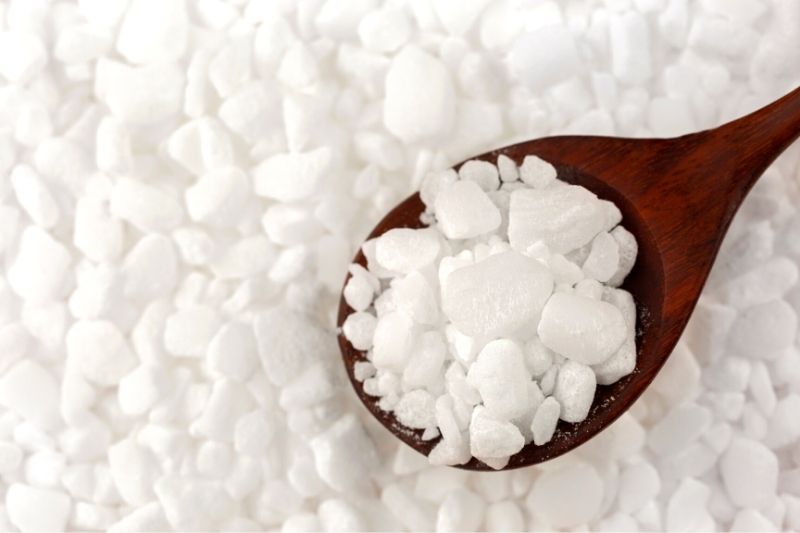
Opinions are split on whether you need dishwasher salt in a soft water area.
My opinion, shared by dishwasher manufacturers like Bosch, is that you should keep your dishwasher’s salt reservoir topped up, even if you live in an area with very soft water.
Very soft water still contains trace amounts of calcium and magnesium, which, if allowed to build up inside your dishwasher, will eventually cause limescale and cloudy glassware. Using dishwasher salt softens the water even further, keeping both your dishwasher and glass tumblers clean and clear.
Plus, dishwasher salt costs next to nothing, especially if you rarely need to refill the reservoir. For instance, 3 kg of Asda’s own dishwasher salt costs less than £2.
What Happens if You Don’t Use Dishwasher Salt in a Soft Water Area?
Dishwasher salt is a great failsafe against limescale and cloudy dishes, but its use is optional in soft water areas. Many people in soft water areas decide against using dishwasher salt, with little to no consequences.
The consensus among forum users tends to skew towards dishwasher salt being unnecessary in soft water areas, with many residents in the soft water area of Edinburgh agreeing that dishwasher salt isn’t required.
However, even if dishwasher isn’t essential, you’ll get better results if you use it.
Your dishwasher will probably work just fine if you don’t add salt in a soft water area, but it might produce cloudier glasses.
Using All-in-One Dishwasher Tablets Instead of Dishwasher Salt
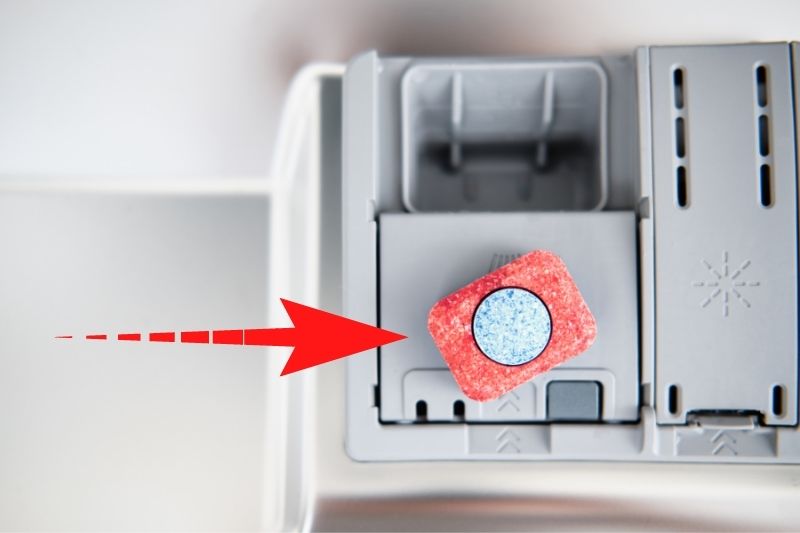
Some detergent manufacturers sell multi-functional dishwasher tablets which include rinse aid and dishwasher salt, seemingly eliminating the need to fill your dishwasher’s salt reservoir.
It should be fine to use all-in-one dishwasher tablets without dishwasher salt if you live in a soft water area, but dishwasher manufacturer Bosch still recommends keeping your salt reservoir full. Bosch explains that all-in-one tablets lessen the number of salt refills required, but don’t stop the need for separate salt.
Dishwasher tablet brand Finish urges you to use separate salt and rinse aid products in very hard water areas but makes no mention of soft water areas.
If you want all bases covered, you should follow Bosch’s advice and keep your salt and rinse aid topped up regardless of your chosen dishwasher tablets. However, this isn’t strictly necessary in soft water areas and is more of an optional extra.
Why Does Your Dishwasher Keep Asking for Salt?
The addition of a salt refill light on the front display of most modern dishwashers means you don’t need to constantly peek into your dishwasher’s salt reservoir. Instead, the light will turn on if the salt needs a top-up.
If your salt refill light is endlessly flashing after each wash, you may not be filling your salt reservoir correctly. You could also have a faulty salt sensor, or you might need to adjust your dishwasher’s water hardness settings.
Put enough salt in the reservoir
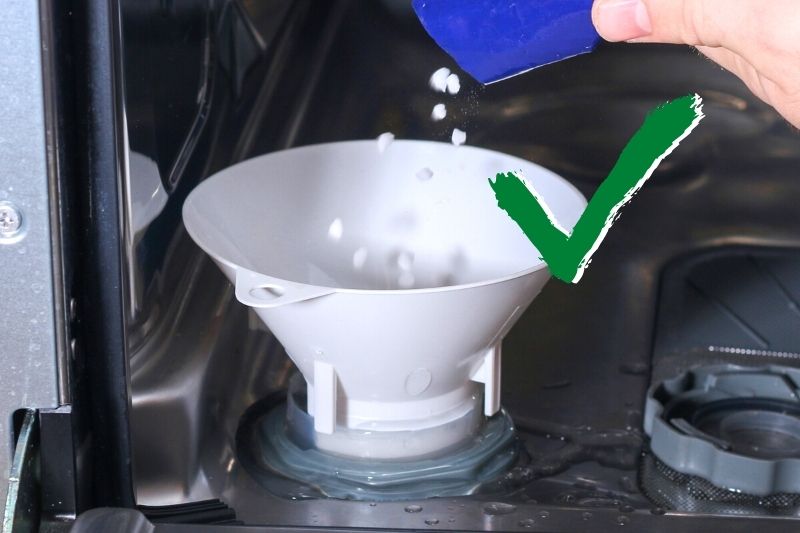
When you refill your salt reservoir, ensure that you fill the salt up to around 1cm below the brim of the reservoir. Water will spill out of the reservoir as you fill it with salt; this is normal, just wipe away the water with a cloth when you’re finished.
If you don’t add enough salt to the reservoir, your dishwasher will constantly ask for a refill.
Adjust your dishwasher’s water hardness settings
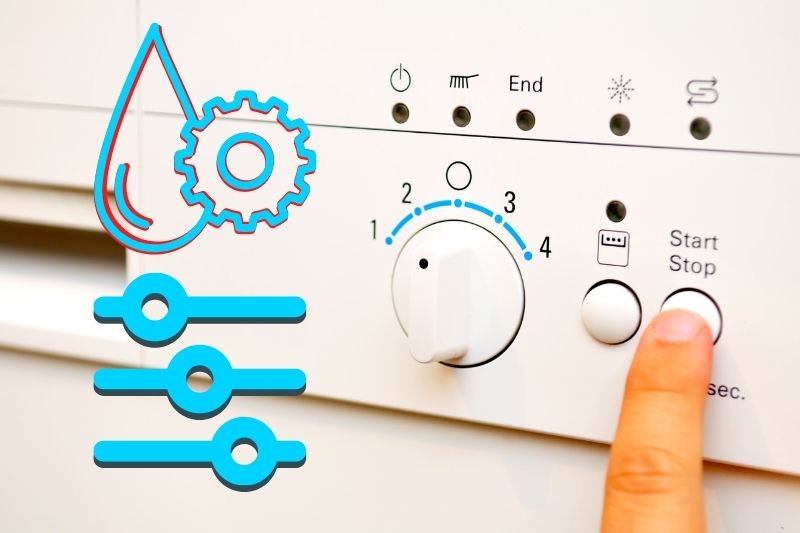
If your dishwasher’s water hardness setting is too high, your dishwasher will use far more salt than necessary.
You can rectify salt over-usage by lowering your dishwasher’s water hardness setting to suit your area’s water hardness. Check your dishwasher’s manual or contact the manufacturer for detailed instructions on how to do this.
Fix your faulty salt sensor
The sensor which detects the salinity of your dishwasher’s salt reservoir may be broken, or the reservoir may be clogged.
Try stirring the inside of the reservoir and giving it a tap, the floating sensor in the reservoir may be stuck. Otherwise, you should contact an engineer if the faulty refill light is bothering you.
Conclusion
While dishwasher salt is essential in hard water areas, salt is more optional in soft water areas.
It’s unlikely that your dishwasher will suffer from a lack of salt if it’s already using soft water. Despite this, keeping the salt reservoir filled is recommended by dishwasher manufacturers like Bosch for additional protection against limescale deposits.
You can use all-in-one dishwasher tablets in a soft water area to further reduce the need for dishwasher salt.
Finally, if your dishwasher is constantly asking for a salt refill, you may need to fix a faulty sensor or change your water hardness setting. You should also ensure you’re filling the salt reservoir correctly.

A recent uni graduate who likes writing, gaming, and drawing. I’m figuring out housekeeping tips alongside you while trying to provide eco-friendly cleaning options. Let’s find out how to use a tumble dryer together!
